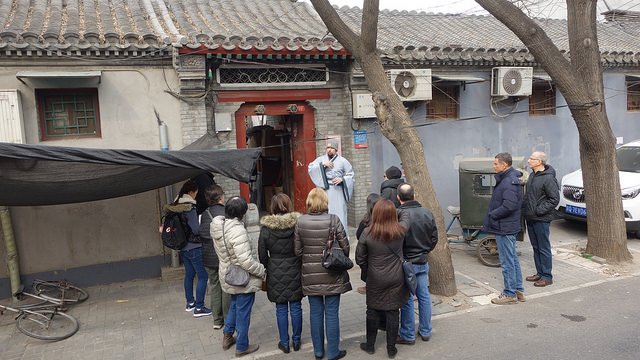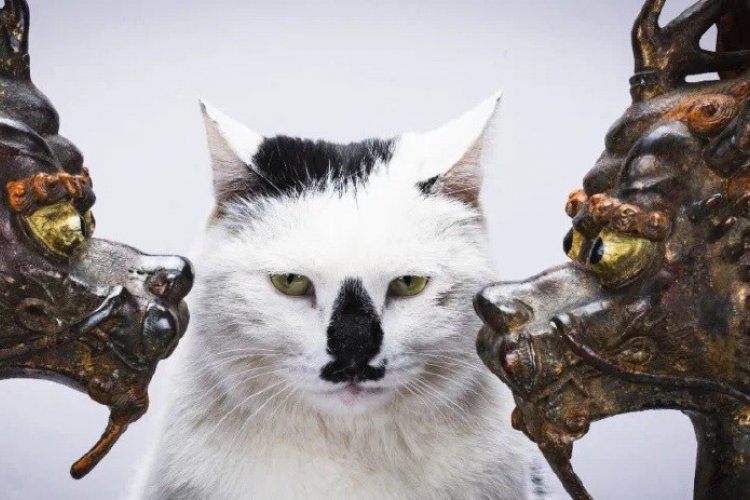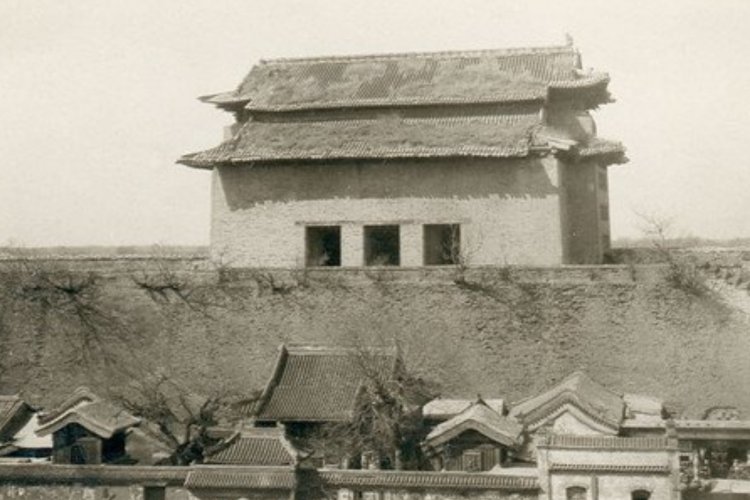Explore the History of the Hutongs with Jeremiah Jenne
Historian Jeremiah Jenne is not only interested in the storied past of the hutongs, but also their potentially innovative future.
"I think one of the most important shifts in the hutongs, in the time I’ve been here, has been a move away from the complete destruction of neighborhoods and structures in favor of a repurposing of those neighborhoods and structures," says the esteemed scholar – famed for his program development at The Hutong cultural center, founding the popular Chinese history blog Jottings from the Granite Studio, appearing on Al Jazeera, contributing to The Atlantic and The Economist, and more – of the promise that Beijing's aged courtyards and winding alleyways still hold.
Jenne will touch on the exciting entrepreneurial spirit spreading throughout the hutongs – before delving deep into their significance in the imperial period, their architectural features, and more – during a walking tour on Saturday, April 2 at 11am. All of the tour's proceeds will go toward a hutong conservation survey being conducted by the Beijing Cultural Heritage Protection Center (CHP).
Below Jenne and CHP program manager Rosie Levine tell us more about the tour, and how its funds are going to a worthy cause.

TBJ: Jeremiah, tell us more about how the hutongs have changed, for better and for worse.
Jeremiah Jenne: It’s a double-edged sword. On one hand, there seems to be a greater emphasis on preserving something of the architectural heritage of the hutongs. But when the courtyards are rented out or renovated to become microbreweries, cultural centers, restaurants, stores, and so on, the local community still atomizes to some extent, as the former residents move away and gentrification creeps in. I know this might not be “for the better,” but perhaps it’s a step in the right direction.
What other aspects of the hutongs do you like to showcase?
JJ: I enjoy teaching students how to “read a gate.” In many other countries, wealth and status could be determined by the size of a person’s house. In Beijing so much was obscured by walls and gates. So learning how to take a gate, and deduce the kind of official who used to live there, is a lot of fun.
This tour's proceeds are going to the CHP. Tell us more about why you want to support it.
JJ: I’ve been a big fan of CHP from the beginning. I think it’s important to have an organization which tracks and calls attention to issues related to historic preservation in Beijing. I’m also excited about their crowdsourced hutong survey being carried out this year.
Rosie, why is this tour a good way to raise funds for CHP?
Rosie Levine: Not only do hutong walks provide an opportunity for the community to support cultural heritage work in Beijing, they're also a great way to raise awareness and interest in these neighborhoods. That's also the theme of our survey, which we called "Project: Walk the Old City." It consists of 100 volunteers walking every hutong in old Beijing, collecting information on the conservation status of each street.
We believe that you need to understand the city to be able to protect it. Through tours like this we can help raise public understanding, and also fund the work we are doing. As an NGO, we rely on the support of the community to make our projects possible.
What else can participants look forward to at Saturday's tour?
RL: We are so lucky to have Jeremiah make this tour possible. He is so passionate about Beijing's history and really brings the stories of the city to life. I think many people walk through these areas but don't know how to access the great wealth of stories, history and culture hidden in the buildings around them. Jeremiah can also back up that passion with extensive research and knowledge. Saturday's tour is guaranteed to be informative and fun!
The tour will take place on Saturday, April 2 at 11am. The cost is RMB 500 per person. For more information, click here.
Photos: Jeremiah Jenne, CHP







